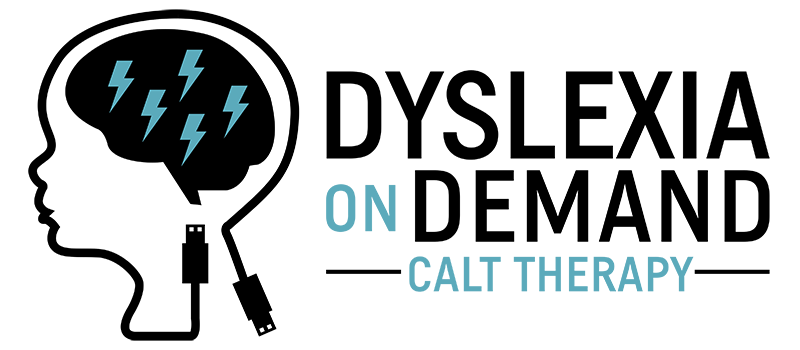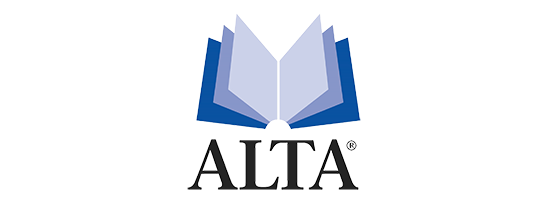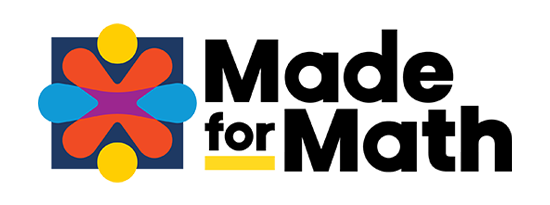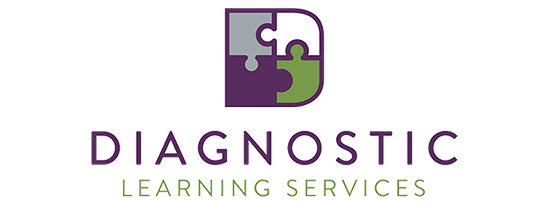Dyslexia On Demand
Resource Guide for Parents
The following websites are a compilation of the most valuable resources for dyslexia-related education, advocacy, and laws.
-
01.National Center on Improving Literacy
The NCIL website is a partnership between literacy and research experts. Not only does it have several parental supports and factual information on dyslexia, but under the Schools and Districts tab, the NCIL reviews and educates on evidence-based reading intervention programs for children and clearly explains dyslexia screening tools needed for early dyslexia intervention. Under Tools and Resouces, there is a “State of Dyslexia” mouse-over map of current legislation in each state. Learn more at improvingliteracy.org.
-
02.National Center on Intensive Intervention (NCII)
The NCII is another fabulous resource for educators, and subsequently, parents, when learning about Data-Based Instruction and Intervention. Under Tools and Charts, the NCII rates different progress monitoring, screening, and intervention tools used by schools. This is helpful for parents to understand the quality of what is being used in the schools. Learn more at intensiveintervention.org.
-
03.Wrightslaw
A “clearinghouse-style” website detailing parent and student rights under the Individuals with Disabilities Education Act (IDEA), Section 504, advocacy training, and recent court rulings favoring students’ rights. The site is frequented by educational advocates and attorneys. Learn more at wrightslaw.com.
-
04.Council of Parents Advocates and Attorneys
The Council of Parents Advocates and Attorneys is an amazing, often unknown, resource for parents to locate an educational advocate or attorney in their local area. Unfortunately, many parents need this level of support when advocating for their children in their local public schools. Dyslexia On Demand is a proud member and supporter of COPAA. Learn more at copaa.org.
-
05.Dyslegia
State laws and protections can vary significantly from state to state. This website maintains the most recent and pending dyslexia legislation by state and is extremely easy to use. Under Evidence-Based Info, there is a link to the What Works Clearinghouse which also reviews and presents research on evidence-based approaches for students. Learn more at dyslegia.com.
-
06.Academic Language Therapy Association (ALTA)
An international organization providing the gold standard in credentialing dyslexia professionals as Certified Academic Language Therapists or Practitioners. Certified members are committed to delivering evidence-based intervention or therapy to individuals who have dyslexia and related learning disabilities. ALTA credentials represent the highest standard of excellence in their field. Dyslexia On Demand is a proud member and supporter of COPAA. ALTA is a resource to find the highest-level dyslexia professionals located in your area. Learn more at altaread.org.
-
07.International Dyslexia Association (IDA)
When a student is diagnosed with dyslexia, this is often a first stop for most parents. IDA not only is a support and professional organization for those impacted with dyslexia, but it also provides parents and educators with a large dyslexia digital library resource for free access. IDA is also a platform to connect dyslexia professionals and parents in your local area. Learn more at dyslexiaida.org.
-
08.Early Literacy Matters
This website directly explains the pitfalls that schools experience with the adoption of comprehensive literacy overhauls. It also summarizes state legislative efforts to overcome literacy blockages. Learn more at earlyliteracymatters.org.
-
09.Take Flight Research Summary
Dyslexia On Demand utilizes the Take Flight curriculum, created by the Texas Scottish Rite Hospital for Children. Take Flight is an evidence-based, therapeutic program specifically targeted at creating neural pathways to retrain the dyslexic brain. Learn more at scottishriteforchildren.org.
Our Posts
Dyslexia Resources
One of the greatest things about working as a medical provider is meeting all kinds of patients with all different kinds of abilities. Working with children who are diagnosed with a disability can be enlightening and enriching for physicians. It opens up a whole world of understanding and connection. For…
As parents, we are in charge of managing and providing so much for our children. There’s the basics like food, shelter, and clothing. We make all kinds of decisions each day in hopes that we are giving our children exactly what they need. Of course, there are also some big…
If you’re someone who works to help young people improve and maintain good health, then you know that health is not just physical. Mental health has become a major concern in the lives of young patients in recent years. More than that, so many aspects of young patients’ lives are…
When you are seeking help for a student with dyslexia, there are a few routes you can take, including tutoring or therapy. Dyslexia tutoring is an approach that tends to focus on academic goals like improving reading comprehension; tutoring usually complements the skills that a student is learning in school.…
In a world where we rely so much on technology, it has become increasingly important to evaluate and capitalize on some of the wonderful things it can do to help us. One strong example of a great use of technology is online dyslexia programs. These online programs can offer many…
When it comes to finding the best reading programs to help with your child’s dyslexia, checking out all of the options can be overwhelming. Seeking the most successful methods for your student is important, but there is just so much to navigate in the world of dyslexia reading programs. From…
Pediatricians, neuropsychologists, and doctors play a crucial role in caring for children and families. They help to promote preventive care through vaccinations, well visits, advice, diagnoses, treatment, advocacy, and ongoing care. One of the most crucial things that medical providers can do is to help address concerns that parents may…
For parents of children with dyslexia, finding the right educational support can feel like navigating without a map; you have a desired outcome or destination for your child—you just don’t know the path to take to get there. If you’re a parent who feels a bit lost when it comes…
Providers are such an important part of a patient’s whole support system. When it comes to pediatric patients who have learning disabilities like dyslexia, doctors have the potential to help with so many different areas of this diagnosis; some facets providers can help with include early intervention, collaboration with teachers,…
Approximately 20% of the U.S. population deals with having dyslexia, but this percentage doesn’t include the parents and family members whose lives are also affected by dyslexia. While parents of a student with dyslexia might experience things such as frustration and confusion, medical professionals of a child with dyslexia are…
Dyslexia on Demand is changing neural pathways to help change children’s futures. As a service that offers dyslexia therapy, we speak to parents of dyslexic children daily. We have discovered the most effective approach to helping children with dyslexia succeed in the classroom and beyond. With clients across the nation,…
When they’re little, you may read books with your children like “Where the Wild Things Are” or “The Book with No Pictures.” As they grow, they may dive into classics like “Charlotte’s Web” on their own. Later, young readers may choose their own reading adventures with chapter books such as…
The human brain is a fascinating thing. Neural pathways in the brain can get stronger and faster the more that we use them. The way we learn through repeated experiences helps our brains to create defined pathways that allow us to perform actions more efficiently. One of the skills that…
When you become a parent, you suddenly have thousands of decisions to make on behalf of another human. From what brand of diapers to choose to what kind of milk you supply, there are so many things to think about when raising children. Perhaps one of the most—if not the…
One of the greatest shifts in the world of education might be the way that we see learning differences like dyslexia. People with dyslexia learn and process information differently than typical learners. In recent years, there have been great developments when it comes to successful interventions for students who have…
Reading can unlock a whole new world for new readers. Building reading skills is such a foundational part of education. However, when your child faces obstacles to reading in the form of a learning disability like dyslexia, it can be frustrating for both the student and the parents. If your…
Sometimes the signs of dyslexia show up in early childhood—around preschool or kindergarten. Things like delayed speech and language development, difficulty learning letters, rhymes, and songs, or even trouble with fine motor skills like writing and drawing can surface around this young age. Later, when students are school-aged, signs of…
Did you know that 20% of the U.S. population is affected by dyslexia? So many children and adults deal with the effects of dyslexia in their daily life—at school, at work, and even reading for daily, leisurely activities. Families and educators are often affected by dyslexia in a second-hand manner.…
Parents tend to have great intuition when it comes to their kids. Sometimes, when children are struggling, parents will pick up on the small details that point to a problem. For kids who struggle with different kinds of learning disabilities, problems might surface with issues like fatigue, moodiness, and anxiety…
Fairy tales, story books, and reading together can make for such sweet moments and memories during childhood. But as parents and educators know, children learn to read at different paces. Sometimes, the process of reading—and enjoying reading—can be affected by a child having a specific learning disability (SLD) like dyslexia.…
The arrival of fall means that school is in session across the nation. Students of all ages and grades are starting the school year in classrooms, meeting teachers, getting to know new classmates, making friends, and hopefully—getting going on their learning journey. For students with specific learning disabilities like dyslexia,…
The education of children is something that impacts everyone’s future. In the United States the educational system is aimed at providing children with foundations to become successful adults in our society. In many ways, education is preparing children for future employment and independent living. If you consider the power that…
As summer winds down and the school year kicks in, the focus of families tends to turn back to school, studies, and student success. For students with learning disabilities, in addition to gearing up with new backpacks, school supplies, and lunch boxes, some educational support can be a great addition…
If you know – or suspect – that your child has dyslexia, it’s important to realize that there is an array of options available to support your child. While many of those options are mandated to be available at school, online dyslexia programs can dramatically improve your neurodiverse child’s chances…
Summer. Just the word conjures visions of vacations, long lazy afternoons and days spent at play. But while we all enjoy the respite provided by the fleeting summer months, it’s not a secret that those weeks without school often lead to a lag in learning. Known as the summer slide…
Throughout history, many individuals have helped to shape our understanding and implementation of education. In the realm of early education, Maria Montessori developed a method based on children’s natural curiosity and eagerness to learn. Montessori schools—focused on early childhood education—center on hands-on experiences and a deep respect for the child.…
When it comes to ways to help a student with dyslexia, there are so many approaches to try. Students with dyslexia may need different accommodations in their school classroom such as a quiet place to work, extra time on tests, or the use of technology to help them. Many families…
Making the leap from high school to college is a big step for any young adult. College presents a huge learning curve for many students—culturally, socially, and academically. For students with dyslexia, transitioning to life on a college campus can be challenging. Dyslexic students should not be discouraged as they…
Currently, there is a spotlight on mental health and its importance – and for good reason. The mental health of children and young adults is especially concerning. According to the CDC, poor mental health is a prevalent problem for adolescents. When it comes to working with students with dyslexia, seeking…
One of the most helpful things parents of students with dyslexia can do is seek the best help available for their kids. A dyslexia program can personalize the learning experience for students. Dyslexia therapists can do this by identifying students’ strengths and weaknesses and providing targeted interventions. Some of the…
One thing is certain about dyslexia: finding the right treatment for your student is so important. If you suspect your child has dyslexia, it is wise to seek an evaluation and options for treatment promptly. By seeking treatment early on, students with dyslexia can have a better chance at improving…
Up to 20% of children are affected with dyslexia. For students with dyslexia, finding the right treatment is essential. You may have heard of some of the commonly implemented instructional methods. Two distinctly different approaches to treatment for dyslexia include dyslexia tutoring and dyslexia therapy. While dyslexia can affect students…
When a student is dealing with dyslexia, it’s common for parents to have questions about treatment for dyslexic students. Parents often wonder if dyslexia affects only reading (no), or if students with dyslexia will be able to learn to read (yes!). One of the most common questions parents tend to…
There is great pleasure to be found in reading; Reading allows students to discover other worlds, identify with and analyze characters, gather interesting facts and information, and become an independent learner. Sometimes, the benefits and pleasures of reading can be hindered by learning differences like dyslexia. Literacy has become an…
Speaking, listening, reading, writing, spelling, and even thinking are daily tasks that so many of us do with ease. Whether you’re scrolling the internet, giving a presentation, or simply carrying on a conversation, these everyday things require so many functions of the brain to operate in just the right way.…
There are so many milestones as babies grow up to be busy toddlers and active school children. From walking to talking, first steps and first words can become landmark occasions for families. By kindergarten, there are often reading milestones set in place. Academic success can be such a great experience…
Dyslexia is a common learning disability; statistics show it affects approximately one in every five people. Once parents are aware that their student has dyslexia, one of the best things to do is to seek support. Support can come in many forms. In the US, some private schools are dedicated…
Even before the days of Zoom meetings and working from home, online dyslexia programs were in existence, helping students to improve reading skills from the comfort of their home computers. Online dyslexia programs—powered by convenience, consistency, and intensity—can help students who struggle with dyslexia to improve. These programs can change…
Keeping it simple is key for kids who are struggling with their reading skills. While data and studies about dyslexia confirm that decodable readers and explicit phonics-based instruction are essential at school, at home it is often the most basic, straightforward reading strategies for struggling readers that emerge as the…
Fortunately, for students with dyslexia (and their parents) who are seeking help with their learning difference, there are many options to choose from. A suitable dyslexia program should be dedicated to addressing the issues that surround this specific learning disability. Giving students the opportunity to learn to be academically successful—regardless…
Reading is one of the most important life skills a student can possess. From math to history to English, reading well is an essential skill across all subjects. However, mastering reading skills can be quite challenging for students with dyslexia. Dyslexia occurs in all languages, and it is estimated that…
There are all kinds of individuals who can help a student with dyslexia. From caring parents at home to helpful teachers in the classroom to professional tutors, many different people are willing to help students who may be struggling with dyslexia. However, if your student is in need of more…
Once your student has a dyslexia diagnosis, seeking the right kind of help can be overwhelming. There are so many different tutors, teachers, therapists, styles, and services. It is important to know the differences between the kinds of treatments that are available. Read on to learn 7 important differences between…
Dyslexia is often associated with difficulty reading, but students with dyslexia often struggle in math too. Math can be complex. It’s a subject made up of symbols, word problems, and concepts of time, sequence, and order. Math also calls on conceptual, logical, and spatial reasoning and computational skills. Learn more…
Dyslexia is often defined in negative terms: a deficit, a disability, a difficult thing. While dyslexia can negatively impact skills in reading, spelling, and fluency, students with dyslexia can have many other strengths. Identifying dyslexia early and designing appropriate instruction is key, but know that there are not just limitations…
According to the Literacy Project, the number of books in a home correlates significantly with higher reading scores for children. But what if you have a child who is struggling to read? Without effective interventions and strategies, all those books might go untouched. Thankfully, in addition to some techniques you…
If you’re diving into the world of dyslexia therapy, you’re about to learn a lot. Some terms will be new to you, and they’ll be a gateway to understanding the process and getting your child the help they need. Multisensory structured language education: This is actually the formal name for…
Finding support for your neurodivergent child can be daunting when you consider the ramifications of that decision will have a dramatic impact on their future educational success. Here are 11 frequently asked questions about online dyslexia programs: What is the difference between online dyslexia therapy and dyslexia tutoring? Dyslexia tutoring…
As parents and guardians of children with dyslexia begin to contend with the various resources and protections available for their neurodivergent child, what can seem like an entire dictionary of terms and phrases begins to be heard. There are dozens of idioms and expressions in the world of dyslexia and…
Every school year tens of thousands of parents get the news that a school screening indicates that their child has dyslexia. For many parents, that determination doesn’t come as a surprise. Either way, those parents are most likely wondering about the best way to help a child with dyslexia. It’s…
Students with dyslexia contend with a number of challenges. Struggling to read can become the first step of an educational experience marred by disappointment and frustration. Thanks to federal law mandating that all children have full access to education, dyslexia accommodations are available to help mitigate the impact of the…
This is the second in our series of posts about The Dyslexia Handbook One of the most important resources for anyone associated with dyslexia, including parents, teachers and school administrators is a Dyslexia Handbook. While not all states have them, dyslexia handbooks are a crucial resource to educators, administrators and…
One of the most important resources for anyone associated with dyslexia, including parents, teachers and school administrators is a Dyslexia Handbook. While not all states have them, dyslexia handbooks are a crucial resource to educators, administrators and parents. Of the more than 25 state handbooks that are in use, one…
With the start of the new school year just weeks away, teachers and students alike are looking forward to the upcoming year with a mixture of anticipation and apprehension. For students with dyslexia the school year can either be a year of frustration or the time they realized their potential.…
It’s hard to know what our children are thinking in the best of circumstances, but when they are struggling it’s particularly important to decipher their thoughts. Here are five things your dyslexic child may be thinking – and how to help. Why is this so hard? Learning to read can…
The challenges that neuro-divergent children face are not only with reading and writing. A dyslexic child’s self-esteem is also frequently impacted by the obstacles to traditional education caused by the learning difference. In this blog post, we’ll explore things you can do to improve your dyslexic child’s self-esteem. For more…
If your child has been diagnosed with dyslexia, the best chance you can give them for a successful academic career is to enroll them in an effective dyslexia reading program. The programs that have a lasting impact will require an investment of time before they are completed. Once your child…
Protections for neurodivergent children are a patchwork across the country, with some states doing an excellent job and others not so well. Thanks to the Individuals with Disabilities Education Act (IDEA) however, all children with dyslexia are guaranteed at least the opportunity for a public school education equal to that…
A healthy sense of self worth is one of the most important traits you can foster in your child. It will help define their relationships, determine their professional success and drive their mental health. What you do to improve your child’s self esteem will have life-long consequences. It can be…
As dyslexia screening becomes more prevalent and awareness becomes more widespread, children with dyslexia are usually identified early in their educational careers. That hasn’t always been the case however, and many adults with dyslexia have never received any assitance in overcoming it. While adults with dyslexia may have improvised coping…
When your child is first diagnosed with dyslexia, it can be an overwhelming feeling. Unless you or someone close to you has faced the learning difference, the prospect of finding the best dyslexia treatment can be daunting. The simple reality is: where you turn for dyslexia treatment will have long-term…
Dyslexia manifests itself most obviously as difficulty with reading and spelling, but there are other cognitive deficits associated with the learning difference that can have a dramatic impact on children’s educational experience. Processing speed, working memory and long-term retrieval all effect how children learn in the classroom and without help,…
Determining that your child has dyslexia can be a worrisome occurrence, but there are resources and regulations, including the Individuals with Disabilities Education Act, designed to help your child flourish. The Individuals with Disabilities Education Act and Section 504 of the Rehabilitation Act Both the Individuals with Disabilities Education Act…
If your child has been diagnosed with dyslexia, you are looking at a range of options for assisting your child. One option that some parents explore are special schools for dyslexia. While that may be an option for some families, the reality is that the best schools for dyslexia aren’t…
If your child is having difficulty reading, it can be hard to know how to help. Here are nine top reading strategies for struggling readers that parents can employ to assist their child. Read to your child: There’s a reason that this is advice you hear every time you turn…
If your child has been diagnosed with dyslexia, you know that this particular learning difference can impact the learning process in a variety of ways. Likewise, in order for your child to be successful, it’s important that effective dyslexia treatment encompasses a range of interventions. One of the most dramatic…
At first glance, Dyslexia and ADHD seem quite different. One makes people read poorly and the other makes it hard to concentrate. Digging a little deeper however reveals interesting similarities. To be clear, they’re not the same, and each has separate treatments. However, about half of children diagnosed with ADHD…
In recent years, the issue of dyslexia and children struggling to read has become increasingly prevalent. A report on fourth grade reading levels in 2019 showed that 38 percent of students read at a below basic level, a number much higher than in years past. Numbers like these are showing…
Although the need for dyslexia treatment will not wane, dyslexia itself is becoming less of a liability in the workforce as jobs – and their required skillsets – evolve. As workplaces adapt to a rapidly changing environment, employers are discovering that the skillsets required of good employees are also in…
Homeschooling a child with dyslexia offers a unique set of challenges and opportunities. I’ve been a mom for ten years now, and for the last 7 years I’ve been homeschooling in some form or fashion. It hasn’t always been full-time, but, at the very least, it’s been a few days…
If you’re someone with dyslexia, what an age to be born into, right? Advances in technology for dyslexia over the last ten years have really changed the landscape due to the vast amount of accessibility options! Assistive technology is now something that is so commonplace that EVERYONE uses these features,…
We are so excited to have been selected as the winner of the Best of 2021 Dripping Springs. Dyslexia On Demand is honored to support individuals in all local communities nationwide in an attempt to bring education and therapeutic intervention to those struggling with dyslexia. We strive to continue to…
Megan was a featured speaker at the North ALTA Regional Conference on Saturday, May 22 for 600 of her professional peers.
Miss Megan recently sat down for an interview with homeschool blogger, Maestro Mom. Read the article now!
Dyslexia as an Adult At Dyslexia On Demand, we often hear from adults who want help with their dyslexia. Sometimes they're looking for tips on living with dyslexia. Others need resources for adults with dyslexia. Many have never been formally diagnosed and want to know if they should be tested.…
When it comes to education, as parents we always rely on the experts - our schools - to lead the charge. These unsung heroes dedicate their lives to their craft and the betterment of our children. Not only are they schooled in education, but they have years of “boots on…
Once receiving a dyslexia diagnosis, parents generally scramble to do two main things--once they deal with the emotional blow themselves: Cram and study up on dyslexia to learn more about their child’s brain andLine up some level of academic support for their children. These are the natural steps and reactions…
Would you ever consider not providing someone in a wheelchair ramp access? Someone with a broken leg crutches? A hearing-impaired individual a translator? Then why would we ever not provide someone with dyslexia accommodations? Accommodations for anyone with dyslexia should not be considered a “leg up,” but instead an opportunity…
Congratulations to our very own Miss Megan! She is now a board member for the International Dyslexia Association (IDA), Austin Branch. We are so excited that she will be even more influential in the advocacy of dyslexia in the state of Texas. Way to go Megan!!
Welcome to the information age! How lucky are we in 2021 to have so much information at our fingertips! Let us face it, the more you know, the more you have access to the information you need to create change for your child and even your community! Not only…
The five Ws of dyslexia testing start with this fact: Dyslexia affects as many as one in five bright and motivated students who have average or above average intelligence. Adult literacy problems are also common, affecting one in four who are intelligent but have not been able to attain a…
The Special Education Process: The Real Truth Do you suspect your child is dyslexic? Ready to find out so we can get he or she the much-needed intervention and accommodations for success? Buckle in because it is time to take a ride on the Special Education Process EXPRESS! Many parents…
Dyslexia: the Responsibility of Special Education or 504? For many reasons, parents need to understand what “umbrella of responsibility” they want their child’s dyslexia diagnosis to be managed under. In many states and school districts, this is not a consistent policy, but it is a difference that can have huge…
Unchartered Territory? You can say that again! COVID-19 has thrust a whole new world of setbacks, and possibilities, on our entire nation and this world. As much as we want to find the silver lining of this global pandemic, it is an understatement to say that managing our special needs…
In the great machinery of the mind, there are many cogs and gears that help us complete day to day tasks and be successful people in life. You could say the Executive Function of the brain is like the main CPU or the management system of the brain. Executive Function…
Two deficit areas run hand in hand with dyslexia: speech issues and ADD/ADHD. They go together like peas and carrots. According to the Centers for Disease Control and Prevention (CDC), between 50 and 60 percent of people with ADD/ADHD also have a learning disability, with dyslexia being the most common.…
The Importance of Having an Advocate In Your Corner We have all heard that being a parent is the toughest job you will ever do. No one understands that line better than the parent of a special-needs child. Parents will do anything to make sure that their child is happy…
I am frequently asked by parents if Dyslexia On Demand provides any math assistance for their dyslexic children in addition to language therapy. Dyslexia refers to a cluster of symptoms, which result in people having difficulties with specific language skills, particularly reading, spelling, and writing construction. Dyslexia therapy specifically targets…
What is the Orton-Gillingham approach? Here at Dyslexia on Demand, our goal is to make sure that each child that we engage with receives individually personalized care catered to the way they respond best. While the generalized term “dyslexia” covers the broad spectrum of symptoms and effects from the neurobiological…
I'm often asked, "What's the best dyslexia book?" Here is the ONE essential read as a parent of a child with dyslexia. When we begin our journey with dyslexia, it can be OVERWHELMING to say the least. You become inundated with research, book lists, and different opinions on where…
Is there a dyslexia cure? Like so many other ailments in life, the first question we often have when we realize there is an issue is, “Can this be cured?” With dyslexia, the simple answer is no. However, with early intervention and individualized teaching mechanisms, dyslexia can become manageable and…
Dyslexia vs Dysgraphia - what is the difference? Dyslexia and dysgraphia are both specific learning differences. Most simply put, dyslexia primarily affects reading and dysgraphia affects writing. Dysgraphia impacts three main component areas: handwriting/fine motor, spelling, and a child’s executive functioning, most seen in difficulty in thought organization of writing. …
Well….does it? With the topic of discrimination on the minds of all Americans these days, it begs the question: Does dyslexia impact one gender, race, class, ethnicity, or geographic location more than another? Dyslexia occurs in every race, culture, gender, race, and socio-economic group. Dyslexia crosses racial, ethnic and socioeconomic…
Did someone say ACCOMMODATIONS? Whether you chose to homeschool voluntarily or have been trust into the situation due to COVID-19 schooling changes, we have all been forced to figure out some key critical answers to the question of HOW. If you have a child with dyslexia or dysgraphia, that question…
Dyslexia Therapy vs. Dyslexia Tutoring: There Is A Difference When researching online dyslexia support options, it helps to understand how the services differ in order to find the best fit for your family. With any investment of time and money, outcome is the closest measure of success, and language intervention…
Parenting a child with dyslexia can be daunting, especially when you are just beginning your journey! You are being presented with a copious amount of new information and likely feel lost on where to start. Like it or not, social media is one of our top sources for information in…
Dyslexia On Demand was brought about for one BLARING reason…. As I dug and learn, I recognized that the experience for dyslexic students country wide was NOT equal. See, I was trained and practiced exclusively in Austin, Texas. In and around that area, due to advanced education on dyslexia, many…
When we receive a positive dyslexia diagnosis, things can feel so daunting to a parent. Often, you had a strong “mama gut” that something was wrong, but once it is confirmed, it often takes some getting used to and moments of panic as we come to terms with it. Any…
We are so excited to have been selected as the winner of the Best of 2020 Dripping Springs. Dyslexia On Demand is honored to support individuals in all local communities nationwide in an attempt to bring education and therapeutic intervention to those struggling with dyslexia. We strive to continue to…
With the onslaught of the “unknowns” created by the world-wide pandemic, the world as we knew it has changed in so many ways. Suddenly, we must act as homeschoolers, a role with which most of us were unfamiliar. Among our new jobs, it is one that we want desperately…
The signs of dyslexia can appear as early as preschool. Whether you’re a parent or teacher— or think you might have dyslexia yourself—here’s what to look for, starting in the earliest years through kinder and first grade. Let me start by saying that dyslexia is HIGHLY genetic. My FIRST question…
Welcome to Dyslexia On Demand! We are passionate about changing the lives of children with dyslexia, one at a time, through targeted specific therapy specifically designed to impact the needs of their brain wiring most effectively! Dyslexia does not go away as it is a different brain organization, but with…
Dyslexia on Demand is proud to partner with MPOWER DYSLEXIA, a 501c3 nonprofit organization focused on assisting low income and/or rural students access to quality dyslexia therapy through subsidized services; identification; education; and purchase and training on the required technology in order to empower students with dyslexia to experience success. …
https://dyslexiaondemand.com/wp-content/uploads/Hill-Country-View_Article_Jan2020-1-1-1.pdf
The emotional and social impacts of dyslexia can often supersede the academic struggles the students are going through. Additionally, parents often feel a sense of helplessness and loss related to their desire to protect their child. The impact of dyslexia can be felt throughout the entire family. How Dyslexia…
Dyslexia In The Classroom: What Every Teacher Needs to Know, International Dyslexia Association https://dyslexiaida.org/wp-content/uploads/2015/01/DITC-Handbook.pdf 2018 Updated Texas Dyslexia Handbook: If you are a parent of a student diagnosed with dyslexia in the state of Texas, this is a must! Print and read this book to arm yourself with your rights…
When a student with dyslexia is eligible for accommodations in the classroom through an IEP or Section 504, those accommodations need to be individualized to fit the unique needs of the student. Accommodations are discussed at the annual IEP meeting, during which the educational team determines the accommodations that will…
Search Search in Title Cost Where to Find It What Does It Do? Title Cost Where to Find It What Does It Do? Epic 7.99/mo Home Getepic.com e-books Unite FREE Uniteforliteracy.com e-books Planet eBook FREE Planetebook.com e-books Learning Ally $135/yr Adults Learningally.org e-Books, Human Voice Narration Bookshare FREE for eligible…
All Kinds of Minds: A Young Student’s Book about Learning Abilities and Learning Disorders Mel Levine, M.D. A Mind at a Time Mel Levine, M.D. Comprehension Nancy Hennessy, M.ED. Driven to Distraction Edward M. Hallowell, M.D. and John J. Ratey, M.D. Dyslexia And Dygraphia: Has Handwriting Become an Instructional Dinosaur?…
Testimonials
What Parents are Saying
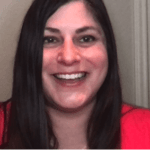
“Damian was reading at a 3rd grade level in 8th grade. After completing the program with Ms. Pinchback, he finished high school and credits her with the fact that he graduated. He went on to college and was even awarded some scholarships. We couldn’t be more grateful.”

“…As a parent, it can be so scary when you get a dyslexia diagnosis. I feel like she took my hand and has been walking through this journey WITH us.”

“We struggled with therapy in the public school system. She wasn’t making progress because there were too many kids and not enough attention on my daughter. Switching to Dyslexia on Demand has been a godsend. She is flourishing and her growth rate has been unbelievable.”
Get In Touch
Is your child in need of dyslexia tutoring to alleviate learning struggles? Let us educate you on the difference between tutoring and therapy.
Telephone:
Email: info@dyslexiaondemand.com
Hours: M-F: 8am – 5pm CST
If you are a certified academic language therapist in search of a work schedule that fits around your busy life, consider teaming up with dyslexia on demand.
